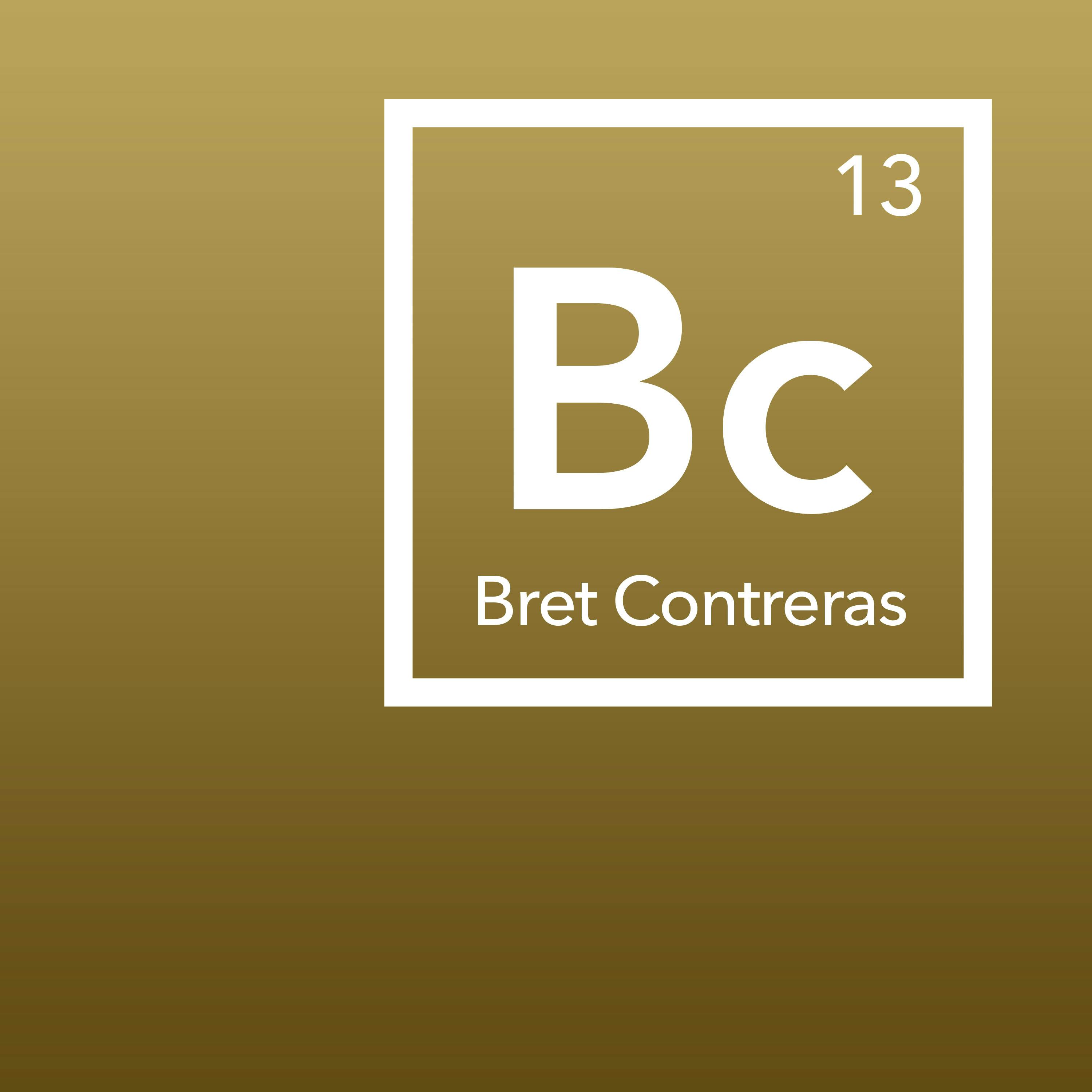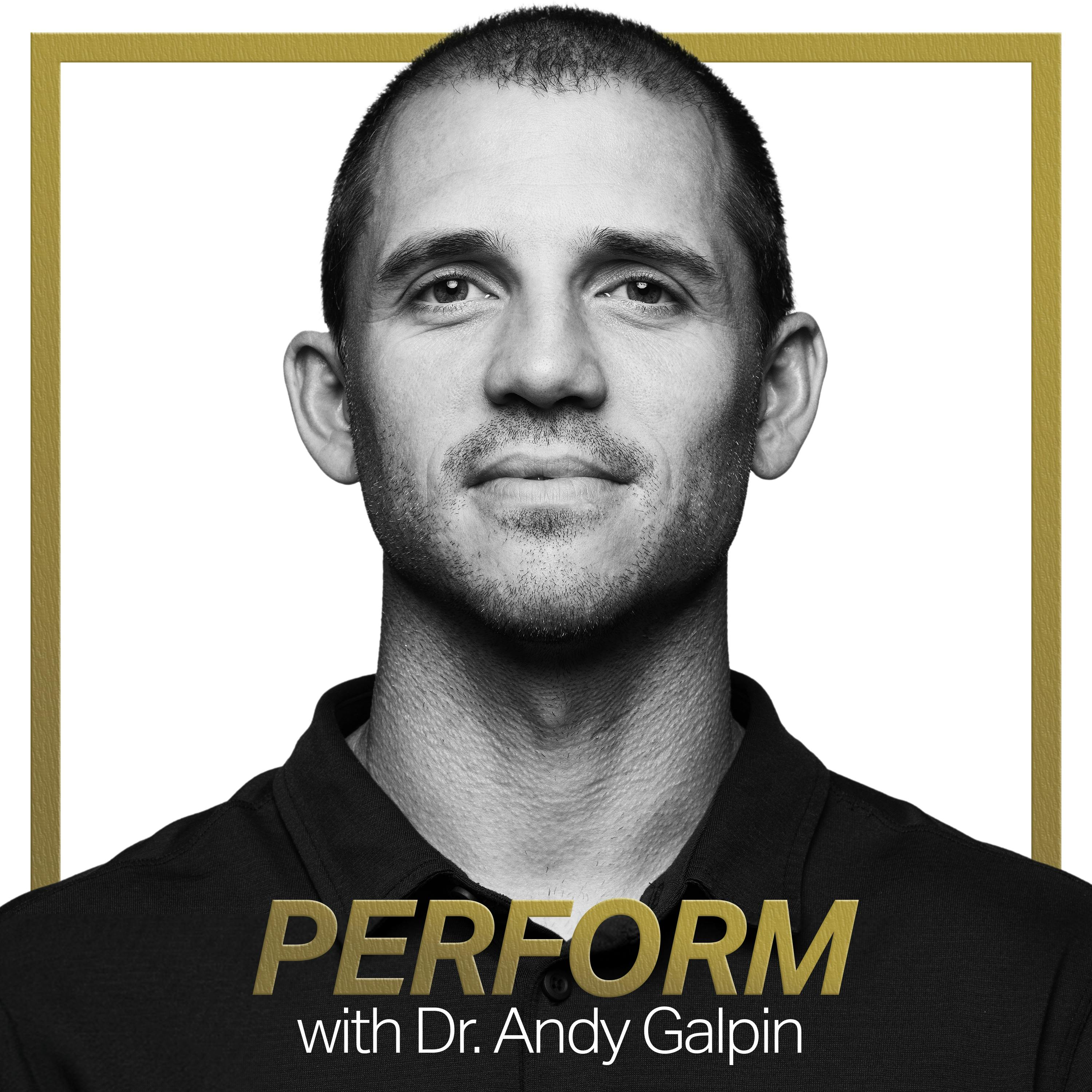
August 14, 2024 • 1hr 41min
Nutrition to Support Brain Health & Offset Brain Injuries
Perform with Dr. Andy Galpin

Key Takeaways
- Brain injuries are common and often "invisible" - Most traumatic brain injuries (TBIs) are not from sports and can occur without obvious physical signs
- Nutrition and supplementation can help reduce risk and improve recovery from brain injuries - Several nutrients have neuroprotective effects and can minimize symptoms
- Key nutrients for brain health and injury prevention/recovery include:
- Creatine monohydrate
- Fish oil (DHA and EPA)
- Vitamin B2 (riboflavin)
- Choline
- Branched-chain amino acids (BCAAs)
- Magnesium
- Anthocyanins (from blueberries)
- Dosages and timing matter - Specific dosages and protocols are recommended for each nutrient, often higher than typical daily intake
- Both supplementation and whole food sources can be beneficial - Though supplements may be needed to reach therapeutic doses in some cases
- Caffeine should be avoided after brain injury - It can impair recovery by reducing blood flow
- More research is still needed - While evidence is promising for many nutrients, more human studies on TBI are required
Introduction
In this episode, Dr. Andy Galpin discusses nutrition and supplementation strategies to reduce the risk of brain injury and enhance brain performance and long-term health. He explains that most brain injuries, including traumatic brain injuries (TBIs) and concussions, are not from sports and are actually quite common in non-athletes.
Dr. Galpin covers the physiology of what happens in the brain during a TBI and discusses science-supported nutrients that can reduce the risk of brain injury, minimize symptoms, and improve recovery. He summarizes both research and clinical studies on specific nutrients and explains their neuroprotective effects.
The episode provides detailed information on recommended dosages, frequency, timing, and potential adverse effects for each nutrient. Dr. Galpin also discusses options for supplementation versus whole-food sources to obtain these nutrients.
Topics Discussed
Brain Injury Categories and Physiology (00:11:36)
Dr. Galpin explains the different categories of brain injuries:
- Mild TBI/Concussion - Loss of consciousness or amnesia for less than 30 minutes
- Moderate TBI - Loss of consciousness or amnesia for 30 minutes to 24 hours
- Severe TBI - Loss of consciousness or amnesia for more than 24 hours
He then details the physiological processes that occur during a brain injury, including:
- Excitotoxicity from glutamate release
- Ionic disturbances (sodium and calcium influx)
- Reduced cerebral blood flow
- Oxidative stress and inflammation
- Mitochondrial dysfunction and energy deficits
Creatine Monohydrate (00:35:44)
Dr. Galpin discusses creatine monohydrate as a key nutrient for brain health:
- Benefits: Improves cognitive function, reduces cortical damage, helps with sleep and mood
- Dosage: 20 grams per day, often split into 5 gram doses 4 times daily
- Timing: Both acute and chronic benefits; can be taken before and after injury
- Food sources: Meat, poultry, fish (but difficult to get therapeutic doses from food alone)
- Strength of Evidence (SOE): 2 out of 5 (strong evidence)
Fish Oil (DHA and EPA) (00:54:57)
The benefits and usage of fish oil for brain health are covered:
- Benefits: Improves cerebral perfusion, modulates inflammation, supports hippocampal volume
- Dosage: 2-4 grams per day
- Timing: Take before and after injury; timing of day doesn't matter
- Food sources: Fatty fish like salmon, herring, sardines
- SOE: 3 out of 5 (moderate evidence)
Vitamin B2 (Riboflavin) (01:03:38)
Dr. Galpin explains the importance of vitamin B2:
- Benefits: Supports DHA utilization, aids ATP production, boosts glutathione levels
- Dosage: 400 mg per day
- Timing: Take after injury; time of day doesn't matter
- Food sources: Liver, fortified cereals, whey protein
- SOE: 3 out of 5 (moderate evidence)
Choline (01:10:17)
The role of choline in brain health is discussed:
- Benefits: Preserves blood-brain barrier, precursor to acetylcholine, supports glutathione production
- Dosage: 1-2 grams per day for acute injury; 500 mg daily for prevention
- Timing: Take earlier in the day due to potential nootropic effects
- Food sources: Eggs, meat, poultry, fish, dairy, beans
- SOE: 3 out of 5 (moderate evidence)
Branched-Chain Amino Acids (BCAAs) (01:20:22)
Dr. Galpin covers the benefits of BCAAs for brain injury:
- Benefits: Supports neurotransmitter production, may improve sleep quality
- Dosage: Up to 54 grams per day in acute cases
- Timing: Take after injury; timing throughout day doesn't matter
- Food sources: Meat, poultry, fish, dairy products
- SOE: 2 out of 5 (strong evidence)
Magnesium (01:26:54)
The importance of magnesium for brain health is explained:
- Benefits: Involved in over 600 reactions, supports ATP production, neuroplasticity
- Dosage: 400 mg twice daily
- Timing: Take before and after injury; may aid sleep if taken at night
- Food sources: Pumpkin seeds, chia seeds, almonds, spinach
- SOE: 3 out of 5 (moderate evidence, but Dr. Galpin considers it very important)
Blueberry Anthocyanins (01:32:01)
Dr. Galpin discusses the benefits of anthocyanins from blueberries:
- Benefits: Protects against oxidative stress, may improve memory and cognition
- Dosage: 500 mg of anthocyanins (about 100g or 2/3 cup of blueberries)
- Timing: Can be consumed daily for general brain health
- Food sources: Blueberries, other berries (strawberries, cranberries)
- SOE: 3 out of 5 (moderate evidence)
Caffeine and Brain Injury Recovery (01:36:09)
Dr. Galpin warns about caffeine consumption after brain injury:
- Caffeine can impair recovery by causing neurovascular constriction
- May lead to diminished emotional health, poor sleep quality, and increased depression
- Recommendation: Avoid overconsumption of caffeine after experiencing a brain injury
Conclusion
Dr. Galpin concludes by emphasizing that while these nutrients show promise for preventing and treating brain injuries, they are likely beneficial for overall brain performance and long-term health as well. He stresses the importance of considering the strength of evidence for each nutrient and consulting with a medical professional before making significant changes to diet or supplementation, especially in cases of acute brain injury.
The episode provides a comprehensive overview of nutritional strategies for supporting brain health and recovery from injury, offering listeners actionable information based on current scientific research. Dr. Galpin encourages further study in this area and reminds listeners that nutrition is just one aspect of brain health and injury recovery.



